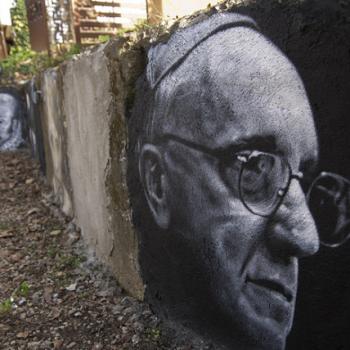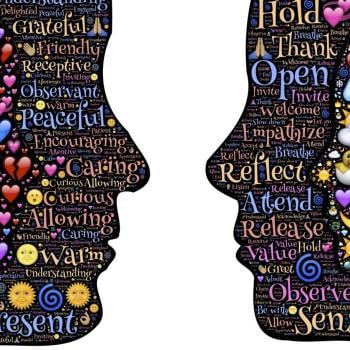How many more minutes before the church service will be over? That was all I could think about. Every agenda item on the scheduled liturgy was just something else I would have to endure. My mind worked hard to calculate how much time the "perfunctories" would demand: Invocation, two minutes. Reading from Psalms, five minutes. Hymn #124, three to five minutes. Sermon, twenty-five minutes, if we're lucky. And on and on it went until the mental calculator registered fifty-five minutes. Fifty-five minutes to go. Fifty-five minutes of nothing to do but sit here. Fifty-five minutes until I can do what I really want to do.
Mine was a test of endurance. The pew was hard; the clock, slow; the mind was wandering, and the scene, all too familiar. It was ten minutes after eleven on yet another Sunday morning. I was right where I had been told since my earliest years I was supposed to be at that time of the week. And, for the life of me, I could not figure out why.
To me, at this point my religion was just a place to go, but where was the purpose? What was the reason? Was it for guilt's sake or God's sake? Was church just a place I was supposed to clock in and out of—to keep God happy—or was there something more? My religion had served up lots of words to me over the years, but it had left me wondering and wandering still. In a world full of life, color and variety, it often felt as bland and tasteless as the factory-processed wafers on the communion table. I was already worn out on religion.
I was only fifteen.
John Adams had his fill
I am convinced that many people today are worn out on religion—plain and simple. We are up to our ears in it. We hear of one religion battling another in the name of their "god." We read of a radical group who believes they will win entrance into heaven by an act of terrorism against the "pagans." We watch priests and preachers wearing robes carrying out rituals one day and facing indictments the next.
The fact is, religion leaves me wanting. I don't even like the word anymore. And my frustration is nothing new; many people feel it. As a matter of fact, throughout the centuries many others have also found themselves worn out on religion. Boston's own John Adams, one of America's founding fathers, early in his career even considered going into the ministry. He changed his mind, however, when he observed the local church services and what he described as the "fierceness of disagreement so inherent in the religion of the time" (Rise to Rebellion by Jeff Shara, p. xvii). He found a great discrepancy between the complex demands of the church and the simplicity of the Gospel. In his own words, in 1756 he asked the question: "Where do we find precepts in the Gospel, requiring . . . Convocations, Councils, Decrees, Creeds, Confession, Oaths, Subscriptions and whole Cartloads of other trumpery, that we find religion encumbered with in these days?" Clearly Adams was worn out on religion. Yet, as his words reveal, it wasn't the Gospel (i.e., "Good news") that turned him off, but all the "accessories" (i.e., "trumpery") men had added to it. Adams apparently knew the Scriptures well enough that he could differentiate between the inspirations of God and the perspirations of men, between human notions and divine intentions.
Karl Barth was even more turned off by religion. One of the most important theologians of the twentieth century, Barth was passionate in his bias against religion. In his commentary on Paul's letter to the Romans, he actually assigns "religion" to the function Paul gave "the law." While he considers religion to be "the highest level of human achievement," he also refers to it as "the loftiest summit in the land of sin." Rather than "releasing men from guilt," religion brings them "under its sway." He goes on to say that "Religion possesses no solution to the problem of life; rather it makes of the problem a wholly insoluble enigma. Religion neither discovers the problem nor solves it: what it does is to disclose the truth that it cannot be solved." Barth ultimately saw the Gospel as the freedom from religion.
More Than Religion?
The people who resisted Jesus and his teachings the most in First Century Palestine were not the pagans or even the Romans. No, his staunchest enemies were the most religious of the day. You might say the most formidable foe he faced was not the devil in the wilderness but religion in the minds of the "righteous". His greatest conflicts clearly were with the religious and his strongest language was reserved for them.





